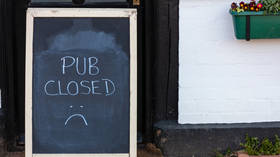No one really voted for Trump or Biden... in the US, your zip code chooses who you’re represented by
With so many states having established themselves as Republican or Democratic strongholds over the past three decades, millions of votes in a US election are utterly pointless. So much for the Land of the Free.
The choice wasn’t ever Donald Trump or Joe Biden.
As we are all very aware, the first to reach 270 Electoral College votes is entitled to the keys to the White House.
The Electoral College was constructed to enable American federalism to thrive. Each state delivers a different number of votes, which are added together to determine a candidate’s total.
Supporters of the system say it preserves the Constitutional element of elections and political stability. Detractors argue that it is less democratic than the concept of one person, one vote.
But it’s why we see situations arise such as Hillary Clinton winning the popular vote, but receiving fewer Electoral College votes than Trump in 2016.
The merit and validity of this system is an argument for another time. But as a consequence of using it, America has artificially divided itself by geography.
It means the name on the ballot doesn’t matter. All that matters is if it’s followed by ‘Republican’ or ‘Democrat’.
Consider Texas, for example. In the last 11 elections, dating back to 1980, the Lone Star state has been red. It has 29 million inhabitants, and major cities such as Houston, Austin, El Paso, San Antonio, and Dallas. The state has a large oil industry, and is also a hub for aeronautics, as well as having its own burgeoning computing industry, known as Silicon Hills.
It also plays host to two of the largest US army bases, Fort Hood and Fort Bliss.
There couldn’t be a bigger switch in climate or lifestyle from arid and stifling Texas to the shivering cold of Alaska. It’s not even connected to any other state, sharing a border with Canada.
Alaska residents live a radically different life to those in Texas, but what links them? The Last Frontier, as it’s known, is also on a long streak of voting Republican (14 elections and counting).
So, for that matter, is Idaho. And Kansas. And Nebraska. And North Dakota. And South Dakota. And Utah. And Wyoming. And Oklahoma. 14 times in a row they’ve gone red.
One place that has notched up even more mirror image results (15) is the nation’s capital and seat of power, the District of Columbia, home to Washington. It’s a Democratic stronghold. The trend continues in the Great Lakes state of Minnesota. It’s gone blue for 12 elections in a row. Washington, Oregon, Massachusetts, and Rhode Island are on a sequence of nine.
Also on rt.com ‘America! You can’t even choose a president without ending up in court… now’s the time for you to come back home to Britain’Now turn the clock back to 1992. A lot has changed since then, socially and politically.
Gay marriage has become a norm, marijuana has been legalised in many places, and ‘fake news’ has become a thing. Netflix or Amazon weren’t around then, and electric cars were the stuff of science-fiction movies.
But Connecticut, California, Delaware, Illinois, Maine, New Jersey, and Vermont have all been voting the same way – for the Democrats – throughout it all.
Even America’s cultural epicenter, New York – which witnessed arguably the biggest event of the 21st century so far in 9/11, and is home to a melting pot of individuals, with millionaire finance brokers riding the subway alongside minimum wage baristas – has been swinging one way since 1988.
To put that in perspective, the Soviet Union was still around then. While it broke up into many different nations which have determined their own way of doing things in the intervening years, the Big Apple is stuck ‘on pause’, voting blue time and time again.
Whatever the state, this trend is perplexing. It suggests that no matter how you develop and change your views, you’re lumped in with a stagnant majority. There is no meaningful outlet to express your wishes democratically.
And all this in a three-decade period that has arguably seen the world change more quickly than at any other time in history.
Now, of course, this phenomenon is partially caused by many Americans living in – or moving to – states where they have the same interests, lifestyles and by extension, likely political affiliations, as their neighbours.
While this is good for individuals, it only stiffens the ghettoisation of the US. People are trapped in a cage of absolutism.
America is such a diverse place that leads the way in so many areas. It has many layers to its society, partly due to the size of the place, but also because of the varied influences that are present. Yet, its people are shackled by state lines in elections.
Whether Trump or Biden becomes president is irrelevant, as half the population won’t be happy anyway. And forget nonsense theories of Russian interference or other rogue elements at play in the voting. That is all a sideshow.
The real concern lies in how many votes become pointless because of where they are cast. America calls itself ‘the land of the free and home of the brave’. But how free or brave are you when your zip code determines who represents you?
Think your friends would be interested? Share this story!
The statements, views and opinions expressed in this column are solely those of the author and do not necessarily represent those of RT.














